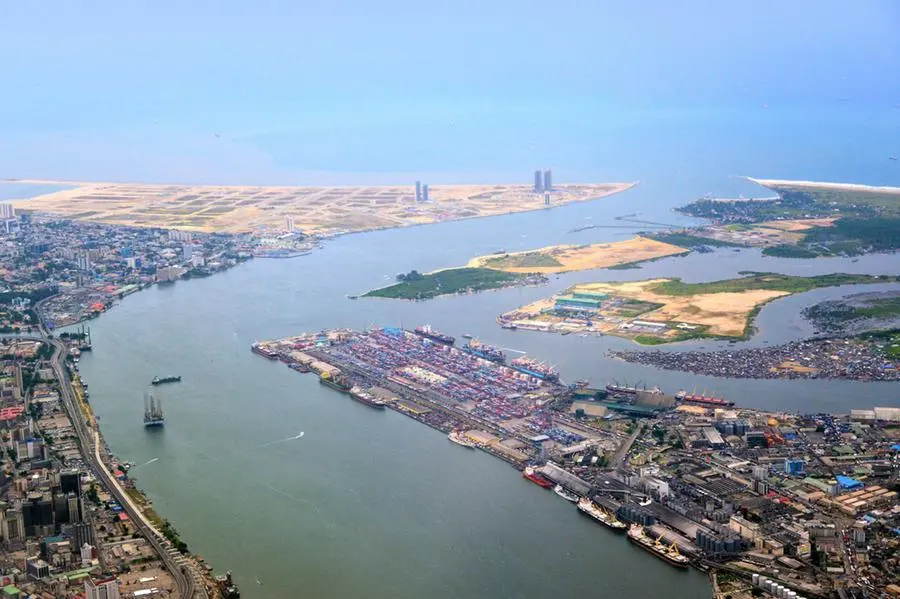PHOTO
THE book is a compendium of activities in the African and Nigerian maritime industry, detailing the author’s personal experience and observations spanning more than 30 years as a hands-on administrator. The book which is made up of 13 chapters is a comprehensive vista of activities that have held down the maritime industry and solutions to ameliorate the situation.
Chapter one talks of the Maritime Industry and Port Performance in Africa. Here the author x-rays Africa’s place in the global international market place and role of the maritime sector in ensuring that the continent remains a veritable competitor through the movement of export and import of seaborne goods.
Related PostsWhy Nigeria, others are not obeying ECOWAS court judgements —Judicial CouncilBeyond Nigeria’s rise in FIFA rankingCapitalising on arts, craft to tackle unemployment in Nigeria
According to him, while African international trade relies heavily on shipping and seaports, it is sad that its share of global maritime trade pales in comparison with Asia, Latin America and the Caribbean.
All these are as a result of the continent’s trade concentration and limited diversification brought about by lack of investments in maritime technology.
Chapter two is a comprehensive insight of the author’s journey through the maritime industry which started from his early years as Port Officer with the Nigerian Shippers’ Council (NSC) and his growth within the organisation bringing with it enormous responsibilities that include the establishment of the Oyo State Area Office of the Nigerian Shippers’ Council in Ibadan which he headed even as he was General Secretary of the Nigerian Shippers’ Council branch of the Senior Staff Association of Statutory Corporations and Government Owned Companies(SSASCGOC).
His odyssey encompassed hectic official assignment of building bridgesto caterfor interests of the organisation and staff.
Even when he was redeployed to the Lagos headquarters, the author did not lower his sight in contributing enormously towards improving relationship between the Nigerian Shippers’ Council and all stakeholders in the Nigerian maritime industry.
Chapter three takes a wider view of the dynamics of global seaborne trade to Nigeria. Here, the author makes case for Nigeria to take advantage of her extensive coastline and embark on establishing a vibrant ‘Blue Economy’ for the economic benefits of the country. He maintained that the maritime industry holds immense significance for coastal countries in terms of economic growth, security, and overall development.
Even at that, it is pertinent to note that while 80 percent of world’s merchandise is carried by sea, the shipping industry is still characterised by demand and supply imbalances, volatile freight rates, environmental concerns, piracy and geopolitical risks among others.
The author regrets that despite the huge contributions of shipping to global trade, Nigeria remains a fringe player in the maritime industry. This stark reality is laid bare by the fact that more than 90 percent of Nigerian owned shipping companies have either shut down operations or are barely struggling to survive.
This chapter also takes the reader into reasons for establishment of Shippers Associations in Nigeria and other maritime nations.
Chapter four talks on ‘The Morality of Change in Maritime Industry’, whereby the author enumerated reasons for choosing the Nigerian Shippers’ Council as Port Economic Regulator which before then was the remit of the Nigerian Ports Authority(NPA) until 2014.
Chapters five, six and seven talks about the Expanded Roles of the Nigerian Shippers’ Council and establishment of the Port Standing Task Team (PSTT) which remit is to monitor, enforce and apply sanctions where necessary, our hope is to merge this function with the Council Act to become a unit in the council.
Inaugurated on March 3, 2021 the Task Team is to serve as the operational outfit with a view to entrenching accountability and transparency, ensure compliance, as well as promote integrity in the maritime sector. It is noteworthy to state that in 2021, more than 85 percent of ships that arrived at Nigerian ports and terminals departed without encountering extortions. Moreover, many illegal acts carried out at the ports by both state and non-state actors that hampered unimpeded movement of vehicles and individuals along the ports’ logistics ring were disrupted.
Chapter eight throws more light on activities of PSTT and its expanded mandate to carry out necessary anti-corruption activities that would help dismantle the illegal networks responsible for the traffic logjam within the port area.
In chapter nine, the author makes a cogent and compelling case for the establishment of a ‘Blue Economy ‘by the Federal Government. According to him, the ocean economy has an estimated turnover of US$3 to $6 trillion. This includes employment, ecosystem services, and cultural services. Among this is the fact that fisheries and aquaculture contribute an estimated US$100 billion per year and about 260 million jobs to the global economy?
Chapter 10 evaluates the potentials of Nigeria’s maritime industry and concludes that its vastness is reason many international companies expanding into West Africa consider the country as gateway to the region. In addition to being the largest market in West Africa, Nigeria has the largest population (estimated at 200 million people).
The Nigerian maritime industry can be described as an all-encompassing sector that embraces all related activities taking place within the country’s maritime environment which include fishing, salvage, towage, maritime transport, ship construction, repairs and maintenance as well as enterprises involved in carrying out these activities.
It is the author’s view that the achievements of PSTT have been monumental, as no other agency before it was able to make such progress in the maritime sector.
In conclusion, the author avers that the Nigerian Maritime Industry has developed over time; even as there are still compelling reasons to further improve the sector to attract potential investments to enhance the country’s economic development.
Copyright © 2022 Nigerian Tribune Provided by SyndiGate Media Inc. (Syndigate.info).





















